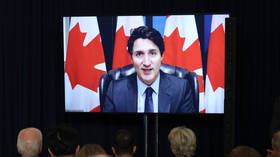Remarks as Prepared for Delivery
It is a privilege to join you today and talk about the work of the Justice Department’s Antitrust Division.
The purpose of this strike force — to “mak[e] sure corporations are held accountable when they try to rip off Americans” — rhymes with the mission of the Antitrust Division.
Congress knew — 130 years ago — that proper, well-timed and vigorous antitrust enforcement is one of our best tools to lower prices, spur innovation and promote sound business practices, while at the same time punishing wrongdoers.
I was nominated by the President and confirmed by the Senate to lead the Antitrust Division at a time when the pandemic was still raging. And there was suspicion that prices were curiously high even after supply and demand shocks had largely settled.
I made it a point to get out and talk to people across the country, from farmers in Minnesota, ranchers in South Dakota, venture capitalists (VCs) in Silicon Valley, small business owners, working people, emergency room physicians, content creators and journalists and so many more.
Here is what I heard: Americans were tired.
They were tired of getting squeezed, they were tired of living paycheck to paycheck, they were tired of worrying whether the economy would work for working people.
Americans from all walks of life were tired of being ripped off.
And they were particularly tired of hollow words and empty platitudes coming from the beltway. They didn’t want book reports or speeches or calls for more calls to do calls.
They wanted action. They wanted help.
So, we got to work. The Antitrust Division, which is home to the best antitrust prosecutors, economists, technologists and paralegals in the world, rolled up their sleeves and got to work.
I want to highlight concrete actions that the incredible staff of the Antitrust Division took to make life more affordable in real terms for real people. This work is hard. It’s painstaking. And it’s not always glamorous, but it matters.
Today, I want to share eight examples of real actions that Antitrust Division took to put more money in the pockets of real people by stopping illegal conduct.
Health care. In the United States, we have the best trained doctors, researchers and scientists in the world. But the price of getting their care is outrageous. And it’s getting worse. Health insurers aren’t just gobbling up other health insurers, they’re acquiring everything. So, the Antitrust Division stepped in to block the largest health insurer in the country from acquiring even more providers, technologies and more. When doctors can’t hang up a shingle and practice because of lumbering, greedy monopolies, we are not only concerned, but we are also stepping in as the cops on the beat.
College tuition. When colleges and universities were price fixing financial aid, the Antitrust Division stepped in to file a brief explaining why it was wrong. Today, colleges and universities have settled those claims and are giving back money to harmed college students.
This conduct was especially egregious amid the student loan crisis that is stifling young people from starting families and buying homes.
Housing. When Americans were tired of paying more to buy and rent homes, the Antitrust Division stepped in to make that Americans are not getting ripped, whether by real estate agents or computers.
Income and wages. The Antitrust Division charged the first ever no-poach and wage-fixing cases and in the last few years obtained the first ever criminal conviction of an employer for colluding to stifle wage growth. We were proud to side with college athletes and fast-food workers against unfair wage caps and restrictions on their mobility.
Airfare. The division blocked two airline deals that would have raised prices and eliminated independent airlines. Just this year, economic research showed the consumer price index for airfare is lower and I’m proud of the department’s role in making airfare more affordable.
Groceries. At a time when Americans were tired of higher prices at the grocery store, the Antitrust Division stepped up to block mergers that result in higher prices for kitchen staples, such as lettuce and vegetables. This includes ongoing matters involving prices for chicken, turkey and pork.
Supply chain. When Americans were tired of supply chain failures that inflated prices, The people of the Antitrust Division stepped to block not one — but two — mergers involving ocean shipping.
Concert fees. When Americans were tired about the rising costs and poor customer services associated with concert tickets, the Antitrust Divisions stepped in to enforce the Sherman Act.
I want to be clear. As much as we will step up to address companies that violate the law and exploit hard working people, opportunities are abundant for honest business and we will fight for open, vibrant market access for those opportunities. We want law-abiding companies to succeed and thrive by competing. We want them to benefit from the opportunity to compete free from predatory monopolies that block innovation and competition.
Often, the people of the Antitrust Division — the lawyers, economists, data scientists and paralegals, face monopolies who will have more lawyers on a single case than we have people at the entire Antitrust Division.
But my colleagues are undeterred. They are not intimidated. They rise to the challenge every single day and will continue to do so without fear or favor. The public is better off as a result, and we all owe them a huge debt of gratitude.
When I came to the Antitrust Division, I encountered the most talented and hard-working professionals in the world who are devoted to fighting to deliver results. I told them that we are law enforcers and that we will speak with our actions and deeds rather than our words. And that is precisely what they have done and continue to do every day. By their actions, they are fighting to enforce the law and lower prices for hard working Americans.





